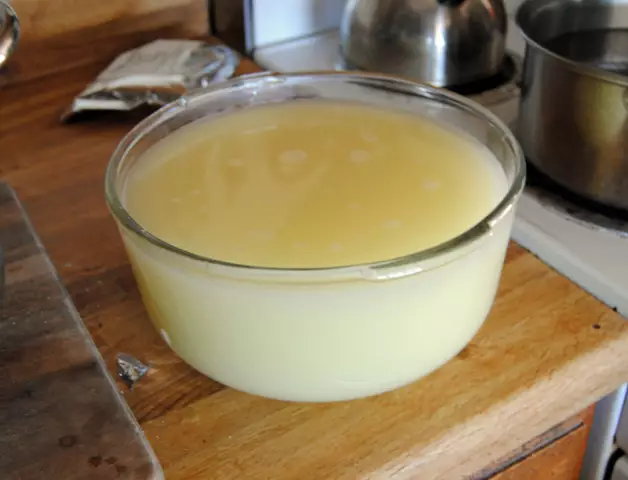- Author Rachel Wainwright wainwright@abchealthonline.com.
- Public 2023-12-15 07:39.
- Last modified 2025-11-02 20:14.
Healing buckwheat: 8 properties of a familiar product
The history of buckwheat cultivation is more than five thousand years old. The groats obtained from this plant are used to make cereals, soups, casseroles and puddings, and flour is made from it, which is one of the main ingredients of noodles, popular in different countries. Buckwheat dishes are healthy and tasty, they go well with meat, milk, eggs, mushrooms, fruits and vegetables.

Source: depositphotos.com
In the national cuisine of the peoples of our country, buckwheat is used very widely. But not all lovers of this product are aware of the properties for which nutritionists value buckwheat so much. Today's article is devoted to her special qualities.
Anemia remedy
Everyone knows that buckwheat contains a lot of iron. Dishes from it are included in the diet of people suffering from iron deficiency anemia or recovering from blood loss. Especially important is the fact that buckwheat contains folic acid, which activates the process of hematopoiesis. That is why buckwheat dishes should be used for radiation sickness and other bone marrow lesions.
A source of essential amino acids
By the content of protein and amino acids (tryptophan, lysine and threonine), buckwheat successfully competes with meat, egg white and dairy products. It is necessary for patients with pathologies of the gastrointestinal tract who have difficulty digesting animal food.
Note that the proteins that make up buckwheat can cause individual intolerance. This should be remembered for young mothers who for the first time introduce buckwheat into the diet of babies. This must be done carefully and if signs of an allergic reaction appear, immediately cancel the new product.
A storehouse of vitamins
In addition to folic and nicotinic acid (vitamin PP), buckwheat is rich in rutin, the deficiency of which in the body is manifested by pathological changes in the walls of blood vessels (increased permeability, decreased elasticity, etc.), as well as vitamin B1.
Groats also contain a large amount of organic acids (citric, malic, oxalic, maleic), which promote the elimination of salts from the body and optimize the acid-base balance.
Source of lipotropic substances
Lipotropic substances are considered natural hepatoprotectors. They protect liver cells from destruction and degeneration, stimulate the removal of fat from them. Therefore, buckwheat dishes containing many such substances are very useful for liver diseases, cardiovascular problems and malfunctions of the pancreas.
Cure for diabetes
For patients with diabetes, buckwheat is recommended as a substitute for bread, potatoes and cereals made from cereals with a high carbohydrate content. Regular inclusion of buckwheat meals in the diet allows you to maintain optimal blood sugar levels, avoiding sharp surges.
Ability to optimize blood composition
It has been established that the use of buckwheat helps to remove "bad" cholesterol from the body. Therefore, it is considered a product that prevents the development of atherosclerosis and hypertension. In addition, buckwheat dishes help to improve the composition of the blood, removing toxic substances from it.
Source of flavonoids
Buckwheat contains flavonoids - natural antioxidants that prevent the development of malignant neoplasms and activate the body's defenses. People who often eat buckwheat meals remain physically and mentally active for a long time, and easily tolerate seasonal infections.

Source: depositphotos.com
One of the safest products
Insect pests practically do not affect buckwheat crops, they do not overgrow with weeds. The cultivation process of this cereal is complete without the use of plant protection chemicals. That is why buckwheat is one of the most environmentally friendly and safe products for human health.
Buckwheat is ideal for dietary meals. By the content of useful microelements and vitamins, it is one and a half to three times higher than all other cereals. Regular inclusion of buckwheat meals in the diet helps to optimize body weight, increase resistance to stress and the influence of harmful environmental factors. The product is well digested and helps cleanse the body of toxins. The use of buckwheat in food has no contraindications, with the exception of extremely rare cases of individual intolerance.
YouTube video related to the article:

Maria Kulkes Medical journalist About the author
Education: First Moscow State Medical University named after I. M. Sechenov, specialty "General Medicine".
Found a mistake in the text? Select it and press Ctrl + Enter.






